
A new program lets Booth students take advantage of their pre-MBA summers and help build alumni-led startups, before classes even begin.
- By
- January 10, 2019
- Student Experience

When Full-Time MBA student Paolo de Vivo walked through the door of his summer internship, it felt nothing like the office where he had spent the last few years. “There were 10 people in a room rather than 400 on a floor, and I basically had to jump in and understand what we were doing,” said de Vivo, who interned at London-based Beekin, a year-old real estate startup that provides risk analytics and is led by Vidur Gupta, ’10.
The all-hands-on-deck atmosphere meant he had opportunities to learn from day one: he delved into the company’s machine-learning-driven models, reviewed product strategy, and became integral to the team. “By week two, I was meeting with clients and venture capitalists,” he recalled.
De Vivo is one of dozens of interns who participated in Startup Summer, a unique, three-year-old program that places incoming Full-Time MBA students at internships with alumni-founded startups during the summer before they begin their first-year studies at Chicago Booth.
Students spend seven weeks working side by side with founders at company offices or coworking spaces. A stipend from Booth covers interns’ living expenses, a boon for young startups seeking talented help. “Our alumni entrepreneurs give so much to Booth, so we wanted to give back to them,” said Stacey Kole, AM ’86, PhD ’92 (Economics), deputy dean for MBA programs.
“I gave them the runway, but they gave my business momentum. They helped me problem solve at a very high velocity.”
And because the participating startups are typically at an early stage—many are still raising capital and have a small staff—interns take on meaningful roles where they can make an impact in a short time and gain valuable career experience. They match through a typical interview process: interns choose their top 10 companies, then founders browse the list and interview a diverse group of candidates before making their final picks. The collaborative effort, which includes the Admissions team, Career Services, the Polsky Center for Entrepreneurship and Innovation, and the Deans’ Office, is the first of its kind for any business school.
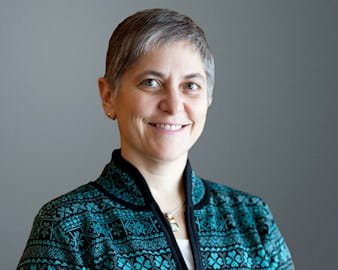
In three short years the program has grown twelvefold: Booth piloted the program in 2016 with just six students and expanded in 2017 to 24 students. In 2018, 70 incoming students interned at 50 Booth-led startups in 10 countries and 18 cities. Last summer’s participants made up about 12 percent of the incoming Full-Time MBA class. While the program had previously been available only to students who expressed interest in entrepreneurship, starting in 2018 it was open to all admitted students.
The idea originated four summers ago, when Kole began to hear a resounding request: “Students shared with us that they wanted to know if they were right for startups, before they arrived at business school,” she said. Since many students leave their full-time jobs a few months before classes start, Kole wondered whether their pre-MBA summer could be put to good use, giving them access to a learning opportunity before even arriving on campus.
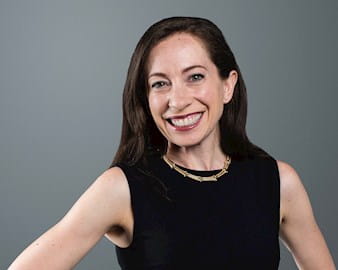
At the same time, Polsky Center executive director Starr Marcello, AM ’04, MBA ’17, was hearing a similar request from the students in Booth’s entrepreneurship courses. While students looked forward to their internships after their first year of classes, a portion “were eager to have that experience even earlier,” said Marcello, who is also adjunct assistant professor of entrepreneurship at Booth.
Kole and Marcello took what they were hearing to a collaborative team of Booth administrators, who came up with a solution: a pre-MBA internship that would give incoming students valuable experience and inform their career paths by pairing them with existing startups led by Booth alumni. “We acted on real-time feedback,” recalled Kole, who is also clinical professor of economics at Booth.
Pre-MBA summer internships offer students an opportunity to explore their career options. Kole said that the program is a low-stakes way for students to understand whether they want to pursue startup life—well before they need to make a career decision and actually take the risk. When applying for internships, “students are thoughtful about how the opportunity complements their work experience,” Kole added.
Some of the students who apply are already interested in working at a startup or starting their own business after graduation. Others use the internship to try out different industries or job functions, Marcello said. “Booth is a time of transition, and students get a feel for how they want their career to evolve,” Marcello said.
Meet just a few of the alumni who partnered with the next generation of graduates during the summer of 2018 to give them a firsthand view of the ups (and downs) of startup life.

For Gupta, who hired Booth interns de Vivo and Balthazar Bergkamp as part of Startup Summer, the temporary additions to the startup were an instant hit. Joining a small team of seven data scientists, the two incoming MBAs shifted the dynamic and allowed Gupta to focus on a strategy to build out new markets. Beekin works with real estate companies and uses machine learning to predict when a tenant is likely to leave.
“They ended up being strategy consultants to my company,” said Gupta. “At the end they drew up a 12-month strategy plan, which has been instrumental to our evolution.”
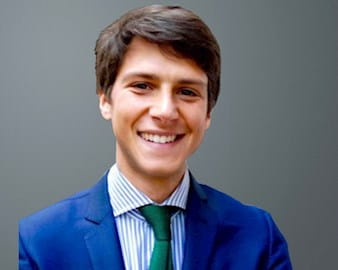
Gupta purposely crafted roles for de Vivo and Bergkamp to give them the flexibility to focus on strategy rather than be stuck working on day-to-day assignments without much impact. He wanted to take advantage of their prior experience in asset management as much as possible. “I gave them the runway, but they gave my business momentum,” said Gupta. “They helped me problem solve at a very high velocity. Not only were they both qualified in asset management, but their selection into the Booth MBA was the best signal for me that my business was in safe hands. Booth is the one suitcase I have unpacked for the rest of my life.”
Looking back, de Vivo said it was a steep learning curve, but one that continues to inform his own career path. For one, the company relies on artificial intelligence and real estate data to draw conclusions about optimal rental strategies, an area he was interested in exploring but hadn’t experienced through his prior work in finance. The internship also allowed him to tackle the ins and outs of a new industry. “I became interested in the [real estate] content and the startup experience itself,” he said.
But the summer was valuable far beyond his formal role. For instance, after Gupta learned of de Vivo’s interest in venture capital and private equity, he invited de Vivo to attend meetings with VC firms and introduced him to contacts working in private equity. The combination of gaining a mentor and a front-row seat to startup life was invaluable, he added. “Working alongside [Gupta], I kind of learned how it’s possible to grow a business from scratch and saw him navigate that kind of uncertainty,” said de Vivo.
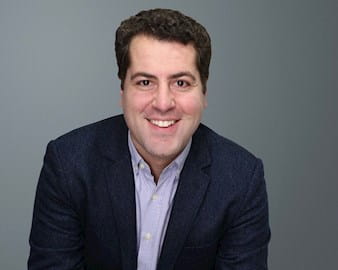
The timing was perfect for Ricardo Taveira, ’13, to take on two summer interns at his company, Quanto. Taveira founded the fintech startup in 2015 and spent two years creating the first open-banking platform for Brazil’s robust financial sector. He worked to develop the product, which he describes as “an Android for banks,” mostly on his own; hiring ramped up slowly. When two Booth pre-MBAs, Justin “Jake” Leahy and Igor Moreira Rabelo, arrived at the office, “we were laying the groundwork for a big launch,” Taveira recalled.
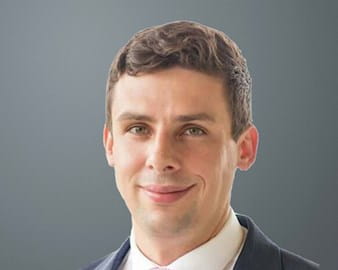
He was eager for the early-stage company to take advantage of business talent without yet having the means to pay for similar full-time hires. “It tripled our business team overnight,” said Taveira, who interviewed five out of the 12 applicants and accepted two. “I was able to get some help from very qualified candidates—far more than a startup at that stage is traditionally able to get.”
The two interns were tasked with researching similar solutions in other countries and benchmarking Quanto’s offerings to better understand the market opportunities within Brazil. They also spent time helping Taveira fine-tune Quanto’s growth strategy.
For Leahy it was a shift to startup life from a career as a submarine officer in the military. The opportunity gave him the kind of hands-on business experience he hadn’t had during his years in the military and prepared him for the MBA environment. “I didn’t know anything about the financial industry in Brazil, but the skills I gathered in the military helped me distill the information that was important,” Leahy said.
As an intern he was introduced to both the technical and financial sides of the business. In later weeks he developed business plans and helped figure out pricing strategies. One of the biggest rewards of the fast-paced internship was a chance to see how his own efforts had a direct impact on the firm, he added. “I felt like we were actually seeing the implementation of our work immediately,” he said.
Taveira, in turn, served as a trusted advisor and helped the interns take advantage of São Paulo’s tight-knit Booth community. He also hosted an end-of-summer barbecue, where the interns met other incoming students from Brazil before arriving in Chicago. “Ricardo took on the role of a mentor,” Leahy said.
Taveira sees the program as a win-win. “It’s such an amazing opportunity for an MBA to get out of their comfort zone and try something new without any sort of pressure,” he said. “And for [Quanto] it was extremely helpful in explaining and defining the narrative to a new audience by bringing in a fresh set of eyes.”
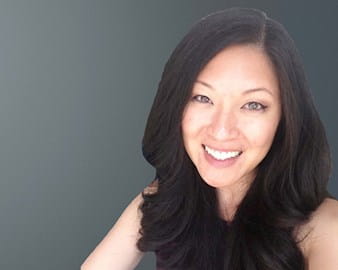
Startup Summer made Booth a top contender for Justin McCarthy as a prospective student weighing business schools. He was drawn to the chance to test out startup life well before he had to make long-term career decisions. “The [internship] program was a major differentiator for me,” he said.
McCarthy spent nearly two months at Chicago-based Riviter, a visual search tool that enables brands to better understand consumer interests. It was a radical shift for McCarthy, who came to Booth from the automotive industry. But the experience of going to an office of fewer than 10 employees from a luxury car manufacturer with 5,000 employees was a good type of challenging. “The work was kind of the surprise I was looking for,” said McCarthy, who was eager to take on a product management role.
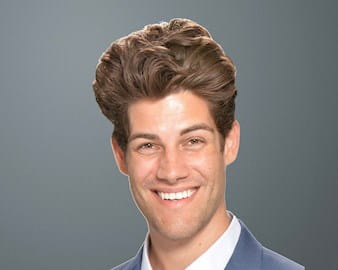
By the end of the internship McCarthy had created a product road map that he provided to the chief technology officer for implementation. The ability to be creative in his role contributed to his effectiveness, he added: “The biggest takeaway was how much I enjoyed having the boundaries lifted,” he said.
For Riviter, the brainchild of Andi Hadisutjipto, ’16, McCarthy was a valuable asset to a company she founded while still a student at Booth. McCarthy and fellow Startup Summer intern Saumitra Sahi were among Riviter’s first interns in their WeWork space: “We wouldn’t have brought on interns if not for Startup Summer,” said Hadisutjipto of their summer with her company.
Riviter’s clients, mostly in the beauty and fashion industries, purchase the tool to integrate into their own marketing efforts. The goal for taking on an intern was to find “someone who could own a slice [of the product offering] and a group of users that we think we can serve with our technology,” Hadisutjipto said. “At the end of the summer [the interns] would tell us about those needs and give us a plan for how to roll out the feature.”
Giving McCarthy autonomy over his role not only created a meaningful experience, but it also propelled Riviter forward. He was able to focus all of his efforts on the company’s long-term growth while tapping into his own business background. The participants “brought their own past experiences and future goals to the table,” she said.
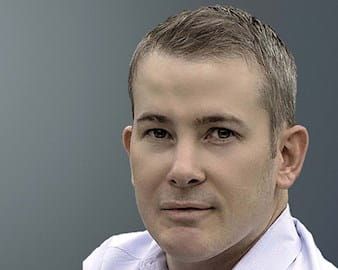
For Mike Kinder, ’11, the seven-week internship was akin to hiring a management consultant to work on a case. “I gave her a lot of open-ended problems to solve,” said Kinder, founder of Dallas-based Veryable, an on-demand labor startup that provides a marketplace for workers and light-manufacturing companies. “What we needed to do was classic consulting-type thinking.”
In particular, Kinder was looking for someone to put together a market-entry plan to help Veryable expand beyond Texas and farther into the southeastern United States. While Kinder had already hired interns in technology and marketing, he was eager for the opportunity to work with someone more senior, who could weigh in on corporate development and strategy. Booth students he interviewed who were participating in the program were especially impressive, he said. “The caliber of students is quite unique,” said Kinder, himself a former operations consultant.
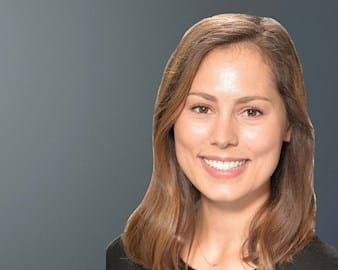
The summer role was ideal for Emily Welch Heinecke, who arrived at Veryable from a more structured role in M&A advisory. The experience served as a bridge between her former role and her life as a business student. The position had far less structure than she was used to, which has come in handy in her coursework. “It was a way to get into the MBA mind-set and to challenge myself,” she said.
Being in close proximity to Veryable’s Kinder and other early-stage employees allowed Heinecke to better understand the variety of roles available within a smaller organization. As part of the small team, Heinecke was able to easily absorb what was going on around her. “Even if you’re not technically involved in every process, you feel like you are,” she said.
Kinder, in turn, was thrilled with Heinecke’s work ethic and effectiveness in shaping Veryable’s growth strategy. “She put in the hours and was often the last one there,” he recalled. “Booth offered an unbelievable perk for an entrepreneur like myself.”
These days, Heinecke has a better grasp of how her finance background can translate to a job in general management or strategy consulting. She hopes to use her experience at the startup to inform the kinds of roles that she’ll enjoy tackling postgraduation. “It affirmed that I want to do things that blend a lot of different functions,” she said.
For alumni-led startups interested in hosting admitted Booth students in summer 2019, please visit the Startup Summer website to learn more about the criteria required to host, timeline, and other details.
Students interested in participating should contact Crissy Ritter in the Polsky Center at crissy.ritter@chicagobooth.edu.

The founder of Jodi365.com reflects on the reading, food, experiences, and apps that make him tick.
Inspirations at Work and Play
How can marketers build relationships with customers within an ever-evolving digital world? Two professors point the way forward.
Reaching a New Breed of Consumer
We asked three members of the Booth community: Madeleine Barr, AB ’16; Chad Miles, ’13; and assistant professor Seth Zimmerman.
How Can You Take a Smart Approach to Student Loan Debt?